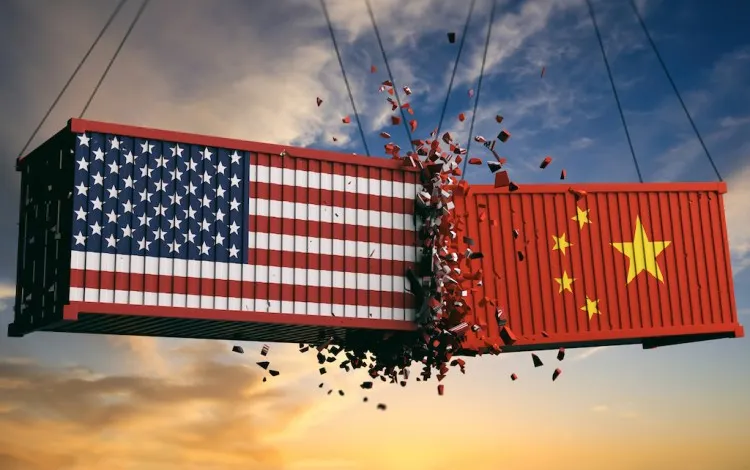Top finance leaders from the world’s seven richest democracies have reached an agreement to tackle global “economic imbalances” — a move widely interpreted as a critique of China’s trade tactics — despite earlier concerns over divisions on U.S. tariffs and how to describe Russia’s invasion of Ukraine.
Prior to the G7 finance ministers and central bank governors meeting, there were doubts about achieving a joint statement, given Washington’s stance on tariffs and reluctance to label Russia’s war in Ukraine as illegal.
However, after three days of discussions, officials issued a comprehensive communique. Notably, it omitted past commitments to climate action, toned down references to Ukraine, and avoided any mention of free trade principles.
Canadian Finance Minister François-Philippe Champagne described the outcome as a show of unity: “We found common ground on the most pressing global issues… The G7 is united in purpose and in action.”
The communique emphasized ongoing monitoring of “nonmarket policies and practices” that distort global trade. While China wasn’t named directly, this language typically alludes to practices like subsidies and currency interventions widely attributed to Beijing.
The G7 includes the U.S., Canada, the UK, Germany, France, Italy, and Japan. Their finance officials met in a calmer atmosphere than the foreign ministers’ March summit, which had been overshadowed by former President Donald Trump’s threats of tariffs and comments on Canada potentially becoming the 51st U.S. state.
U.S. Treasury Secretary Scott Bessent called the gathering productive: “I don’t think there were any major disagreements… the meeting went great.”
German Finance Minister Lars Klingbeil stressed the urgency of resolving tariff-related trade tensions, warning they were placing a “heavy burden” on the global economy: “Our hand is extended,” he said.
French Finance Minister Eric Lombard noted, “The atmosphere was warm. We don’t agree on everything, but we talked about everything.”
Although the statement didn’t directly address U.S. tariffs that have disrupted global trade, Champagne said the topic was seriously discussed, as Canada continues efforts to lift Trump’s 25% duties on items like steel and aluminum.
The Chinese embassy in Ottawa did not immediately comment on the G7 outcome.
The finance ministers also reiterated condemnation of Russia’s war in Ukraine, though the language was notably softer than previous G7 communiques. While past statements branded the war “illegal and unprovoked,” the latest version referred to it as a “continued brutal war.”
Trump, now re-elected, has lessened support for Ukraine and hinted that Kyiv shares blame for the conflict, while seeking to bring Moscow to the peace table.
Meanwhile, face-to-face Russian-Ukrainian talks recently resumed in Istanbul for the first time in over three years, though the Kremlin denied reports of upcoming Vatican-hosted negotiations.
The finance summit leads into the G7 Leaders’ Summit, scheduled for June 15–17 in Kananaskis, Canada. The White House confirmed President Trump’s attendance.

